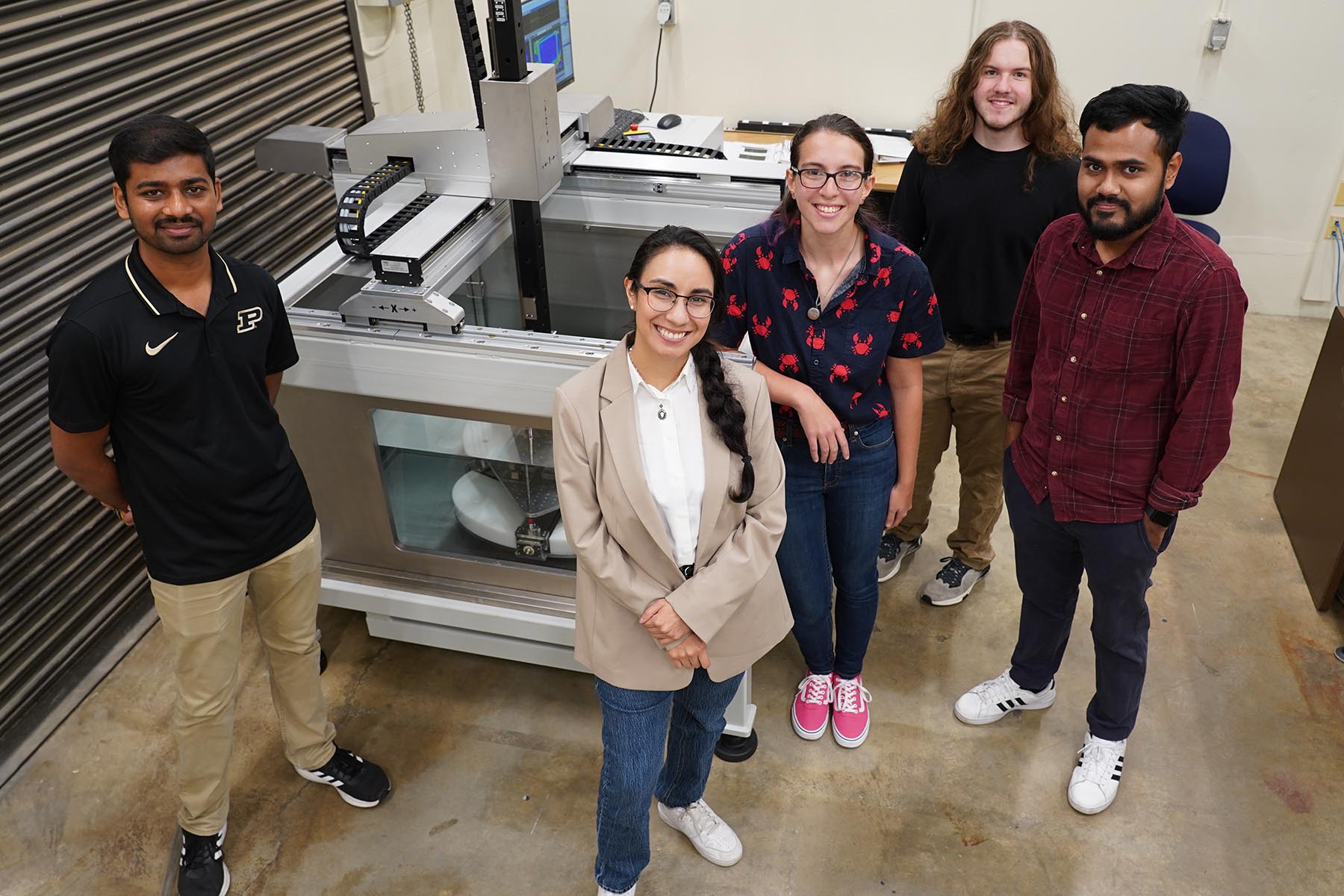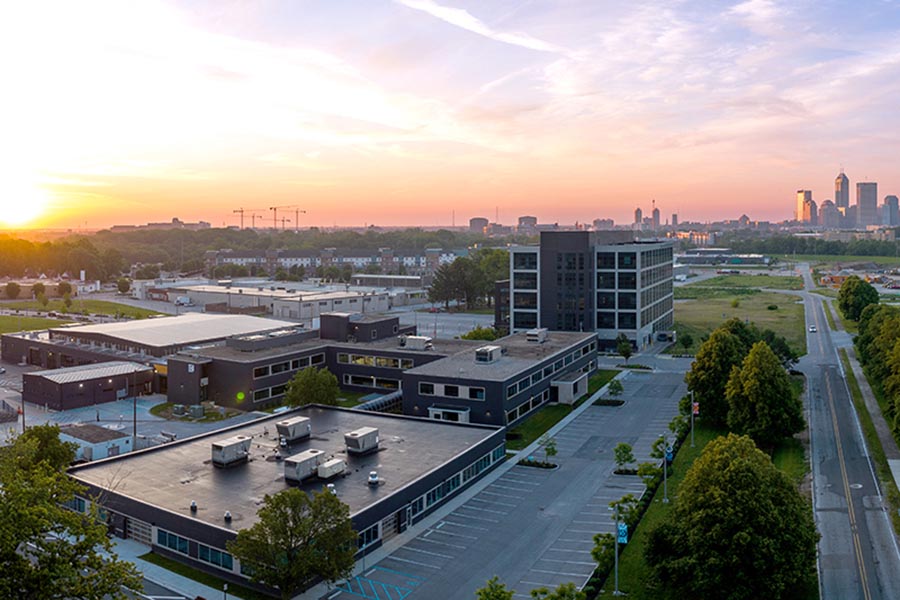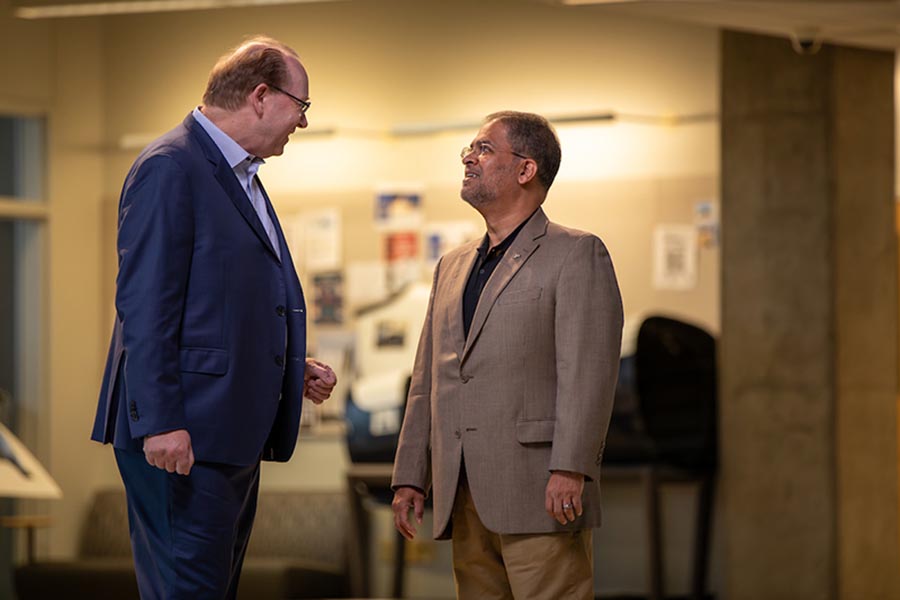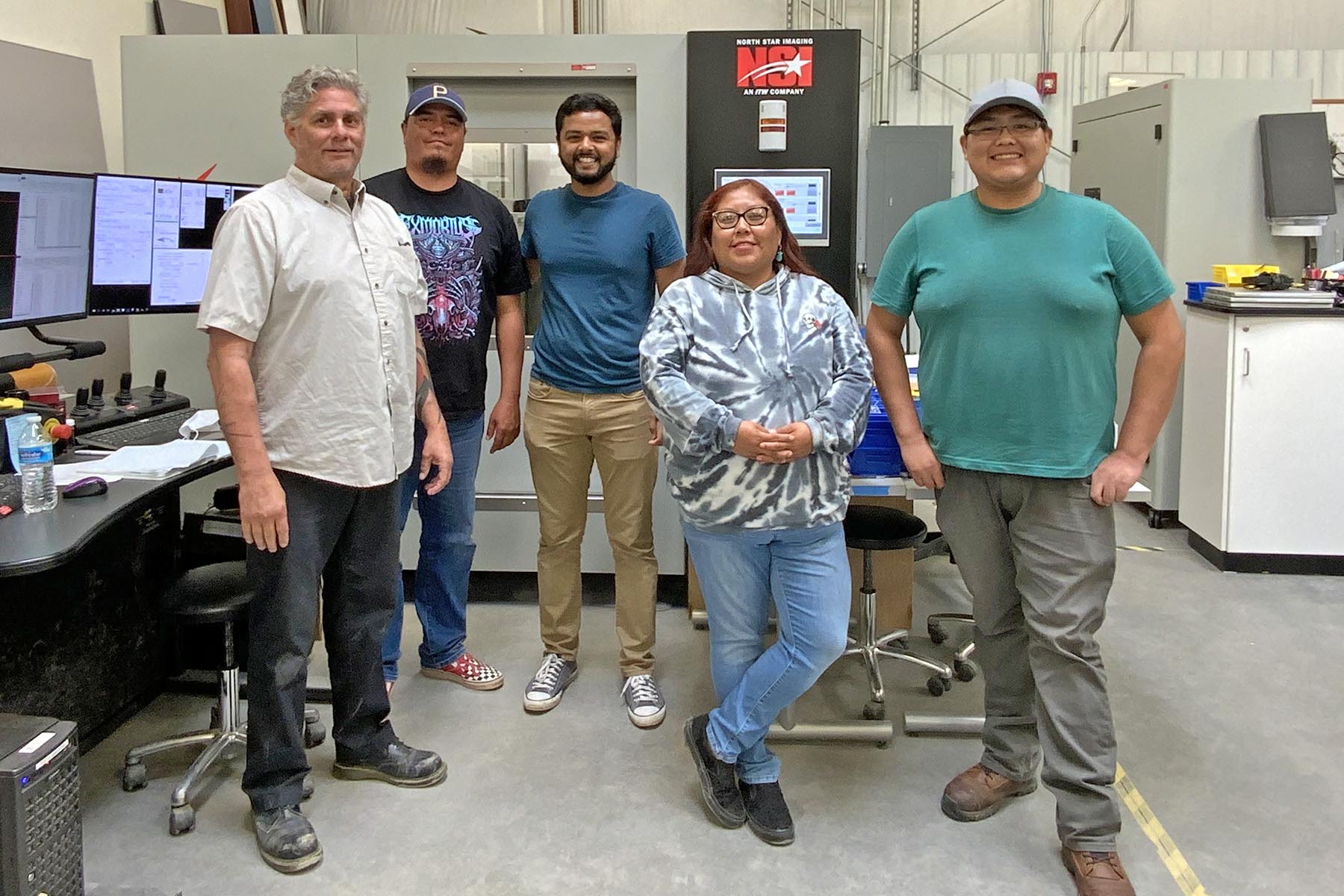Convergent Manufacturing
Manufacturing has been a central focus of Mechanical Engineering at Purdue, going back to the 1800’s. Today, researchers study every aspect of manufacturing and materials processing, from automotive and aerospace to electronics and medical applications.
By studying the fatigue and fracture of materials, Purdue researchers can pinpoint what needs to be strengthened, and how much. In nanomanufacturing, new breakthroughs enable devices to do things unthinkable just a few years ago. And in the theoretical realm, manufacturing processes and systems are always being refined, allowing companies to build the best products in the best way with the best people.
Faculty in Convergent Manufacturing
Renewable Energy Materials (physics-based energy yield predictions, sustainable PV and energy storage materials, recycling)
Electro-Optical-Thermo-Mechanical Reliability (in-situ and in-operando accelerated stress tests)
Heterogeneous Integration & Advanced Packaging (sub-10 μm pitch interconnects, low-loss interposers)
Harsh Environment Electronics Integration (high temperature Pb-free solders and nano-thermal interfaces)
Modeling and experimental studies on processing
Structure property relationships in polymer films and moldings and polymer/metal/ceramic hybrid systems
Dynamic systems and control
Mechatronics
Digital and functional printing and fabrication
Motion and vibration control and perception
Embedded systems and real-time control
Advanced materials
Bioinspired design and manufacturing
Nanomachines
Bio-inspired and mechanically adaptive electronics
Multimaterial additive fabrication
Soft actuators (artificial muscles)
Wearable actuators (haptics)
Polymer design and polymer physics
Deformation sensors and transistors
Vibrations and nonlinear dynamics
Smart material systems
Non-pneumatic tires
Optimization of mechanical systems
Additive manufacturing
Predictive, multi-scale modeling and simulation of microstructure evolution in confined granular systems, with an emphasis in manufacturing processes and the relationship between product fabrication and performance.
Application areas of interest include:
(i) particulate products and processes (e.g., flow, mixing, segregation, consolidation, and compaction of powders),
(ii) continuous manufacturing (e.g., Quality by Design, model predictive control, and reduced order models), and
(iii) performance of pharmaceutical solid products (e.g., tensile strength, stiffness, swelling and disintegration), biomaterials (e.g., transport and feeding of corn stover) and energetic materials (e.g., deformation and heat generation under quasi-static, near-resonant and impact conditions, and formation and growth of hot spots) materials.
Advanced multi-scale manufacturing
Ultrafast laser machining and processing
Fiber optic sensors and environmental monitoring
Spray-based nanoparticle coating and additive manufacturing
Machining of carbon fiber reinforced polymer (CFRP) composites
Naturally nanostructured materials
Energy, water, and wearable technology
Manufacturing
Bio-inspired designs
Surface engineering and multifunctional materials
Convergent Manufacturing for Industry 5.0: hybrid manufacturing processes, heterogeneous materials, and bio-inspired designs
Systems integration, productization, and production
Heavy-duty machines: machining, lubrication, and corrosion
Heterogeneous and hierarchical integration (mechanical-electrical-optical and nano-micro-meso-macro)
Precision agricultural and food: cellular agriculture, vertical farming, micro-production, and resilience
Frugal engineering, social innovations, and social equity
Manufacturing in space
Dissimilar material 3D printing
Additive manufacturing of energetic materials
Additive manufacturing of materials for high temperature applications
Quality control in additive manufacturing
Scalable nanomanufacturing: lithography and imaging
Optical and magnetic data storage
Nanoscale energy conversion, transfer and storage for alternative energy
Mechanobiology and biomechanics
Diagnostics
Bacterial biophysics
Micro/nano fluidics and transport
Biotechnology development
Physicochemical hydrodynamics
Measurement tools
Biomedical devices and wearables
Human Skill and Augmentation
Collaborative and Hybridized Intelligence
Deep Learning of Shapes and Computer Vision
Human-Robot-Machine Interactions
Making to Manufacturing (M2M)
Factory of the Future and Robotics
Manufacturing Productivity
Simulations of nanoscale thermal transport
Machine learning, optimization, and high throughput design
Thermal management in electronics, space, and battery applications
Transport phenomena in additive manufacturing
Nanomaterials and devices for sustainable energy
Contact mechanics
Stresses, fatigue and friction of rolling/sliding
Micro-mechanics of boundary and mixed lubrication regimes
Spall initiation and propagation
Surface science and damage
Dynamics of ball and rolling element bearings and rotating systems
Friction induced vibration and squeal in dry contacts
Friction and wear of dry and lubricated contacts
Virtual tribology
Dry and lubricated fretting wear
MEMS for in-situ monitoring of tribological contacts
Discrete element modeling
Design
Laser additive manufacturing
Ultrafast laser matter interaction
Laser welding
Laser assisted machining
Laser shock peening
Multi-physics, multi-scale modeling
Micro-nano manufacturing
Solid mechanics, multiscale and multiphysics modeling.
Design of engineering material systems.
Fracture and fatigue.
Microarchitectured materials.
Biomechanics of soft and hard tissues.
Multi-process/multi-material additive manufacturing
Nondestructive evaluation
Advanced acoustic materials and metamaterials
Ultrasonics
Laser-matter interactions
Laser-induced plasma and laser-plasma interaction
Laser applications in manufacturing, materials processing, and other areas
Nanoscale energy transport
Nano-optics and laser-based nano-optical engineering
Biomanufacturing and biopreservation
Microfluidics
Biotransport
Micro/nano biomedical devices
Diagnostics
Multiscale superfast 3D optical sensing
Biophotonic imaging
Optical metrology
Machine/computer vision
3D video telepresence
3D video processing
Virtual reality
Human computer interaction
Environment friendly design and life cycle engineering
Applications of bio-based materials in manufacturing
Fast and low-cost detection of pathogenic microorganisms
Biomass thermo-chemical upgrading for liquid and gaseous fuel
I want to research in
I want to have an impact in...






